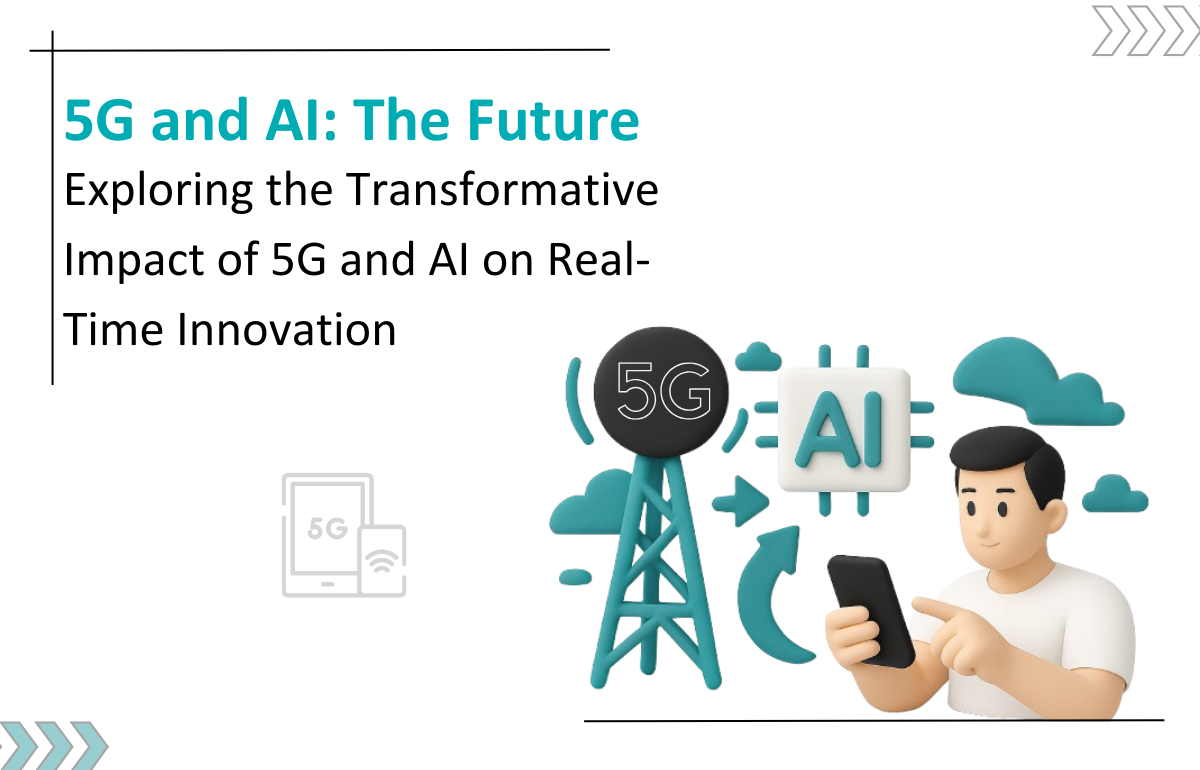
Over the years, technology has seen massive shifts and advancements in each of its domains. Two of technology's most important domains, artificial intelligence, and wireless communication networks, have improved significantly.
5G is the latest wireless communication standard, designed to connect anything and everything virtually. Artificial intelligence is the technology domain that tries to give cognitive abilities to machines to reduce human intervention.
In this blog, we try to understand the impact of 5G on artificial intelligence. Does 5G have the potential to become a catalyst for the growth of artificial intelligence? Let's understand!
5G refers to the fifth generation of cellular wireless communication. Notable USPs of 5G include a Low latency rate for higher responsiveness, bigger channels for faster speeds, and the ability to connect more devices.
AI and machine learning are data-intensive industries. The core basis for providing cognitive intelligence to the computer is by training it with innumerable data sets. Whenever a machine performs an AI-based task, it requires a lot of data transfer back & forth in order to perform the desired task smoothly and precisely.
There are some critical tasks that require the transfer of data instantaneously for quick decision-making. Latency in such tasks isn’t affordable.
5G has the potential to revolutionize the AI industry because of its unique advantages over the previous generations of cellular networks. The most important benefit is its lower latency for higher responsiveness.
Experts and studies suggest that 5G is up to 20 times faster than 4G. Due to this major advantage of higher speeds and lower latency, the growth of artificial intelligence-based software and applications will increase. Tasks that are performed on a real-time basis such as real-time video transmission for surveillance systems will be hugely benefited from the rise of 5G.
Adopting 5G networks is not an easy task. There are a lot of complexities associated with it. However, AI can stir up the process.
Ericsson did a survey in which it asked senior executives and decision-makers of 132 communication service providers all over the world about their current and future plans for adopting AI into their networks.
Key findings of the report:
From the above blog, it is evident that 5G and artificial intelligence does have the potential to act as a catalyst for each other's growth.
AI being a data-intensive industry, requires quick transfer of data for effectiveness, which can be realized using 5G. At the same time, cellular companies around the world are leveraging the power of artificial intelligence to deal with the complexities associated with laying out 5G networks.
We, at Seaflux, are AI & Machine Learning enthusiasts, who are helping enterprises worldwide. Have a query or want to discuss AI or IoT projects where the cloud can be leveraged? Schedule a meeting with us here, we'll be happy to talk to you.

Director of Engineering